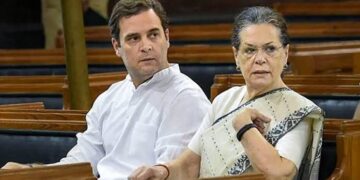The Calcutta High Court directed Indian fast bowler Mohammad Shami to give his wife Haseen Jahan and daughter a living allowance of Rs 4 lakh every month during a legal battle with her husband.
Explain that Jahan had moved the High Court against the order of the District Sessions Court, in which the cricketer was instructed to pay Rs 50,000 to his wife in 2023 and Rs 80,000 to his daughter.
The order passed by Justice Ajay Kumar Mukherjee on Tuesday stated, “I think, petitioner number 1 (wife) will be appropriate and appropriate to ensure the financial stability of both petitioners by the petitioner number 1 (wife) and Rs 2,50,000 to her daughter.
The order stated, “However, in relation to the petitioner’s child, the husband/opposite side number 2 will always have the freedom to assist his education and/or other appropriate expenses in addition to the above amount.”
Jahan lodged an FIR against Shami and his family in March 2018 at Jadavpur police station in March 2018, four years of their marriage, including “heavy physical and mental torture” and “constant apathy and neglect” against “heavy physical and mental torture” and their minor daughter under Section 12 of the Domestic Violence (PWDV) Act, 2005.
Apart from domestic violence, he also accused Shami of dowry harassment and match fixing and alleged that Shami had stopped taking financial responsibility for his family’s expenses.
He prayed for monetary relief for himself with an interim monetary relief of Rs 7 lakh per month and an additional Rs 3 lakh for his daughter. The magistrate, while settling his application, initially rejected his prayer for monetary relief and directed the fast bowler to pay a monthly payment of Rs 80,000 for his minor daughter.
On the appeal, the order was later amended, in which Shami was directed to pay a monthly payment of Rs 50,000 to his wife and Rs 80,000 to his daughter.
The High Court order stated, “Considering the ingredients presented to me and considering the elements of determining the amount of maintenance prescribed in the judicial decisions, I think there is a need to amend the amount of interim monetary relief prescribed by the lower court.”
It further states, “The opposite side/husband’s income, financial statements and earnings establishes that it is in a position to pay a higher amount. The petitioner’s wife, who is unmarried and living independently with the child, is entitled to get the same maintenance, which she enjoyed during marriage and who secures the future of the child as well as the future of the child.”






